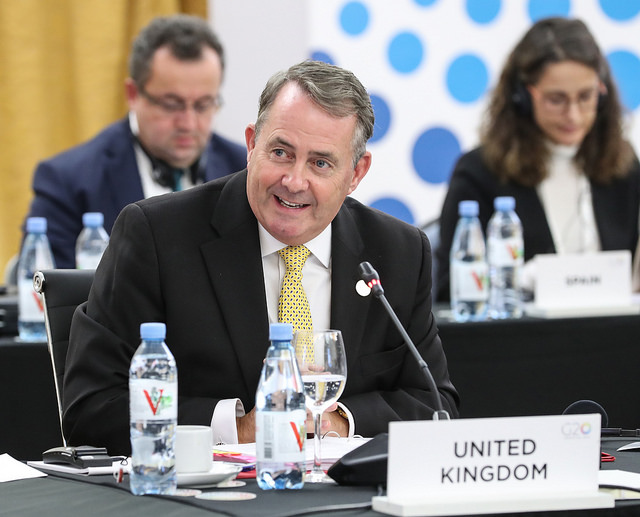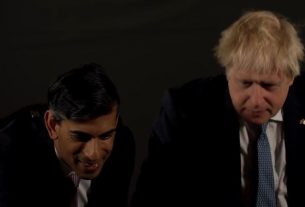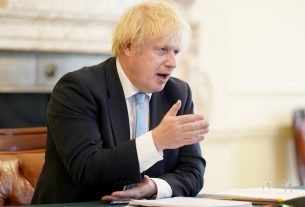US President Donald Trump is “very keen” to agree a trade deal with the UK after it leaves the EU, claims the International Trade Secretary Liam Fox.
Fox was speaking on a visit to New York to highlight the historic links between the two countries, where he said the UK was in a “strong position” to do a deal.
The US Congress has already been told that the Trump administration intended to start talks on a comprehensive trade agreement with the UK after Brexit.
But there is widespread opposition in the UK to any deal, amid fears of a lowering in food standards and the effect on the NHS and farming industry.
Fox made his remarks while hosting cyber security talks with businesses aboard the new aircraft carrier HMS Queen Elizabeth, which is on a visit to New York.
He told his audience: “Trade and security are linked. Where better to be discussing the interplay of these relationships?”
Mr Fox told the BBC that the UK is in a strong position, due to the “unique relationship” between the two countries.
But American trade experts said Mr Trump’s ‘America First’ policies left no room for honouring historic alliances.
The President has slapped tariffs on foreign steel and aluminium this year, including from his EU allies, and has threatened to do the same with car imports.
Professor Daniel Hamilton from the Johns Hopkins School of Advanced International Studies in Washington, said any new deal could take years to agree.
He said there was “not much substance” behind the proclamations from the UK and US about a deal.
Marjorie Chorlins, executive director of the US-UK Business Council at the US Chamber of Commerce, said the ‘special relationship’ will count for little with President Trump.
But another expert said a UK-US deal was logical and possible, as there was already billions of dollars in trade between the two countries.
Theodore Bromund, senior research fellow at conservative think tank The Heritage Foundation, said serious negotiations could begin by April next year.
He added: “The structural advantages that the UK has in dealing with the United States shouldn’t be underestimated.”




